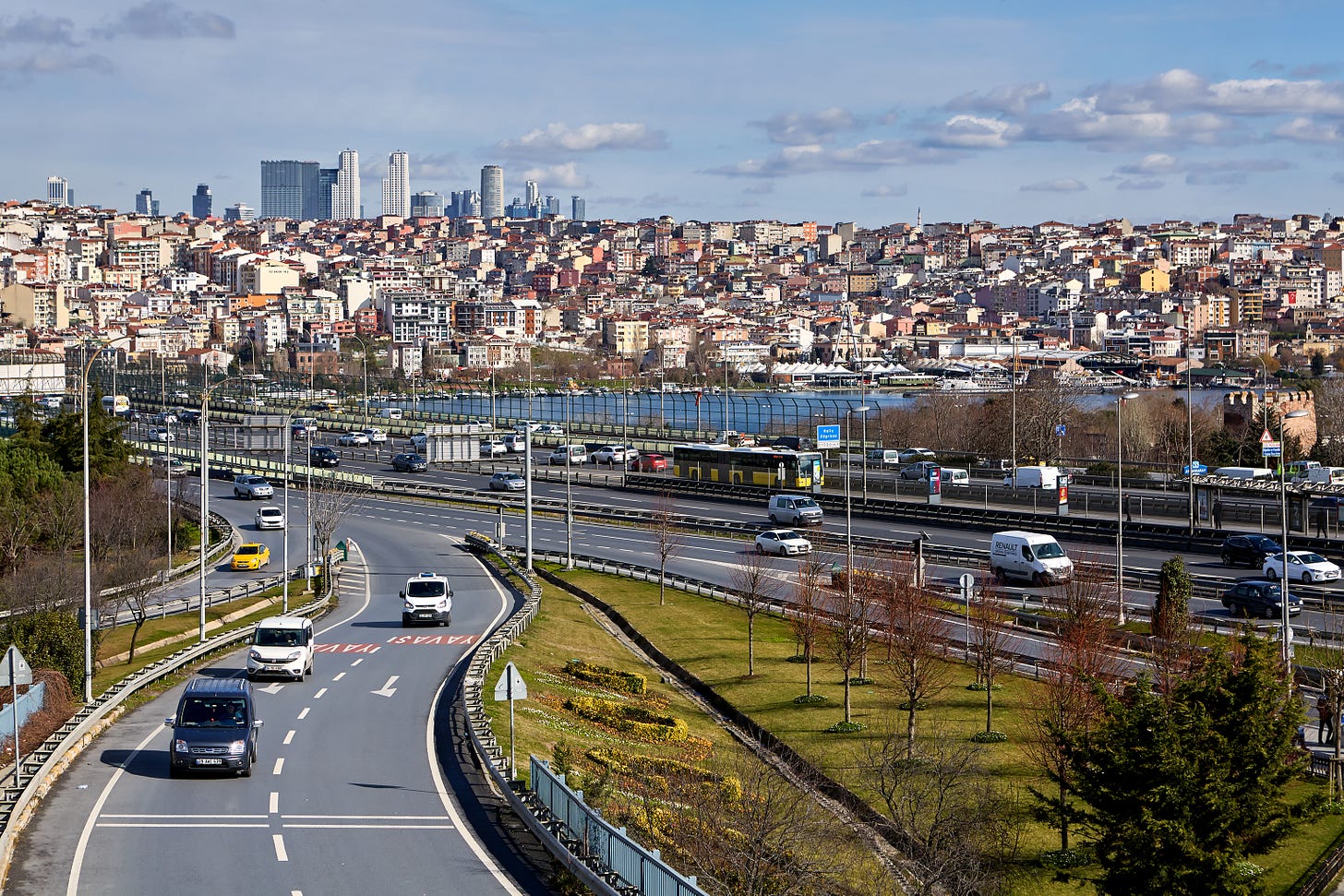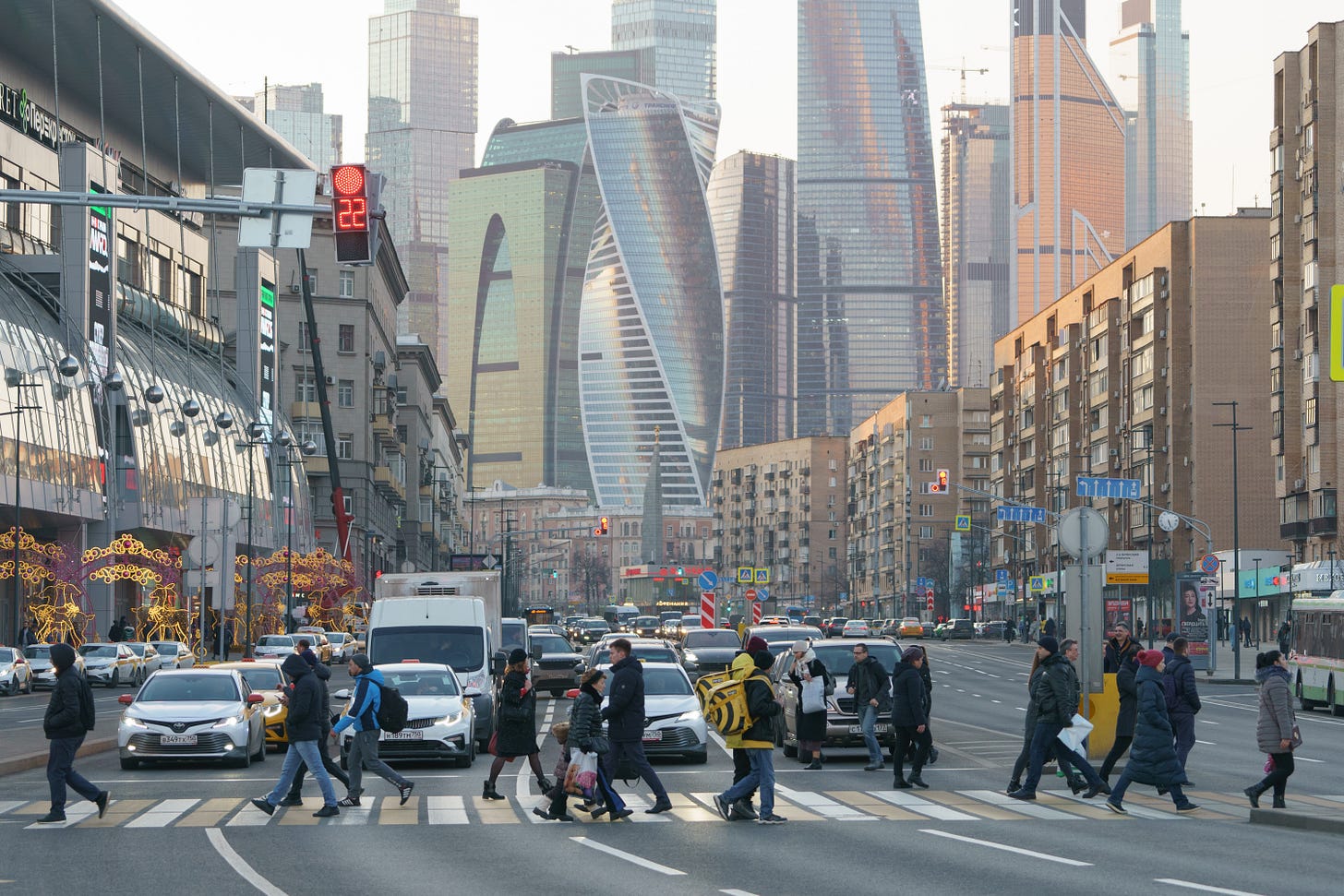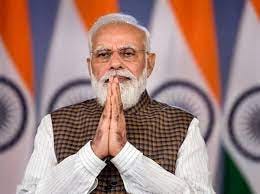Emerging Markets Daily - March 24
UN Cuts 2022 Global GDP Forecast, Heavy Outflows from China Stocks, Putin's War Annuls 15 Years of Economic Gains, Nigeria's New Fertilizer Plant, India Geopolitics
The Top 5 Stories Shaping Emerging Markets from Global Media - March 24
UN Cuts 2022 Global Economic Growth Forecast on Ukraine War Shocks
The National
“The UN downgraded its forecast for global economic growth for 2022 to 2.5 per cent from 3.5 per cent as the Russia-Ukraine war worsens growth prospects, weakens the rebound from the Covid-19 pandemic and deepens uneven recovery.”
“Russia will fall into a deep recession this year, while significant slowdowns in growth are expected in parts of Western Europe and Central, South and South-East Asia, the UN Conference on Trade and Development (Unctad) said in a report on Thursday.”
“Long-standing structural problems, new geopolitical risks and tighter monetary policies are set to stymie growth across developing economies, it said. This will not only hurt their fragile recovery but also undermine their long-term development, it added.”
“‘The economic effects of the Ukraine war will compound the continuing economic slowdown globally and weaken the recovery from the Covid-19 pandemic,’ said Rebeca Grynspan, secretary general of Unctad. ‘Many developing countries have struggled to gain economic traction coming out of the Covid-19 recession and are now facing strong headwinds from the war. Whether this leads to unrest or not, a profound social anxiety is already spreading.’”
“The Russian military offensive in Ukraine entering its second month has led to higher oil prices, which has added to inflationary pressures on the global economy and raised the price of food and commodities. The International Monetary Fund and other organisations have said the conflict will dent global growth this year, increase poverty and disrupt supply chains.” Deena Kamel reports.
China Stock Market Weathers Heavy Foreign Outflows
Wall Street Journal
“Foreign investors have unloaded $9.5 billion of mainland Chinese stocks this month, reflecting a reassessment of geopolitical risk following the financial isolation of Russia.”
“The outflow as of March 24, via a trading link with Hong Kong known as Stock Connect, is on pace to be the second-largest monthly drawdown since the program began in 2014. The biggest occurred in March 2020 when Covid-19 rattled global markets and offshore investors sold a net $10.6 billion of onshore stocks.”
“Foreign investors have poured huge sums into China in recent years. As onshore markets have ballooned in size, Beijing has made them easier to trade and these securities have joined influential indexes run by providers such as MSCI Inc. In December, foreigners held more than $600 billion each of onshore shares and bonds, central bank data shows.”
“Analysts and investors say it is too early to call a turning point in that gradual embrace of China. But they say something could have changed amid the recent market turmoil, which was also fueled by U.S. delisting concerns and China’s worsening Covid-19 outbreaks.”
“Foreign investors got a wake-up call when Russia invaded Ukraine, a war that many in finance didn’t expect to happen, said Robin Brooks, chief economist at the Institute of International Finance. The questions they are now asking about China are different from a few weeks ago, he said.”
“‘Questions are being asked about why did we get Russia so wrong, and what else might we be getting wrong. I think that’s where China could potentially be coming in,’ said Mr. Brooks, who tracks international capital flows.” Rebecca Feng reports.
Putin’s War Seen Wiping Out 15 Years of Russia Economic Gains
Bloomberg
“Russia is set to erase 15 years of economic gains by the end of 2023 after its invasion of Ukraine spurred a multitude of sanctions and prompted companies to pull out of the country, according to the Institute of International Finance.”
“The economy is expected to contract 15% in 2022, followed by a decline of 3% in 2023, leaving gross domestic product where it was about fifteen years ago, economists Benjamin Hilgenstock and Elina Ribakova wrote in a preliminary assessment of the impact of the war, noting that further sanctions may change their view.”
“Russia’s invasion of Ukraine last month spurred a collapse of the ruble and threw global supply chains and commodities prices into chaos, while also sparking the mass departure of companies from the country. French automaker Renault SA is among the latest firms to pull out, announcing that it will halt operations at its Moscow plant and saying is considering the future of a longstanding Russian venture called AvtoVaz.”
“Even after the immediate hit to Russia’s economy, the economy will suffer for years to come from a so-called ‘brain drain’ -- the exodus of educated, middle class Russians with the financial means to leave the country -- and from U.S. and EU export controls on technology, including microelectronics, which will hinder technological development in Russia for years, according to the IIF.” Bloomberg reports.
Nigeria Launches Africa’s Largest Fertilizer Plant
Africa News
“Nigerian President Muhammadu Buhari inaugurated a $2.5 billion fertilizer plant with which Africa’s most populous country hopes to contribute to the global supply amid the impact of increasing prices in the aftermath of the Russia-Ukraine war.”
“During the inauguration of the Dangote Fertilizer Plant in the commercial capital of Lagos, on Tuesday the Nigerian leader said the nation ‘stands to gain extensively’ from production at the plant.”
“With the global fertilizer market jolted, Nigeria Central Bank Governor Godwin Emefiele said the inauguration of the plant is timely as it has ‘helped Nigeria to solve a perennial fertilizer problem.’”
“Agriculture is a lifeline for Nigeria’s economy, contributing 25.8% of its 173 billion dollars gross domestic product in 2021…Fertilizer from the plant located in an industrial zone in Lagos will be exported to many countries including the U.S., Brazil, India and Mexico, said Aliko Dangote, Africa’s richest man and owner of the plant, amid shock waves from Russia where an ongoing war with Ukraine has disrupted supplies.”
“Across the world, high fertilizer costs already threaten farmers amid sanctions on Russia, a major global supplier of fertilizer, where authorities in March urged domestic producers to temporary halt exports.” Africa News reports.
India Is In A Geopolitical Sweet Spot, Courted By Many from the Quad to Russia
CNBC
“Russia’s invasion of Ukraine appears to have unwittingly put India at the sweet center of a diplomatic triangle in the Indo-Pacific. As the war enters its fourth week, New Delhi has been receiving a stream of high-profile visitors from major capitals around the world.”
“At one end, this has included delegations from the United States, Australia and Japan, the three nations which are India’s partners in the Quad, officially known as the Quadrilateral Security Dialogue. The Quad is willing to look past India’s refusal — including in four recent UN resolutions — to condemn Russia’s invasion of Ukraine.”
“An informal grouping, the Quad works to deepen strategic cooperation on issues related to security, technology and the economy while implicitly countering China’s assertiveness in the Indo-Pacific.”
“The foreign minister of Greece Nikos Dendias arrived on Tuesday and Israeli Prime Minister Naftali Bennett is scheduled to visit in early April. But in a surprising turn of events, even traditional rival China is making overtures to India at this time, seeking New Delhi’s assent to a visit by Foreign Minister Wang Yi.”
“Another suitor is Russia, India’s trusted arms supplier for decades, which is now also becoming a supplier of discounted crude oil to New Delhi as Moscow recoils from sanctions enforced by western consumers of its natural gas.” Ravi Buddhavarapu reports.
“Clouds come floating into my life, no longer to carry rain or usher storm, but to add color to my sunset sky.” ― Rabindranath Tagore, Stray Birds





